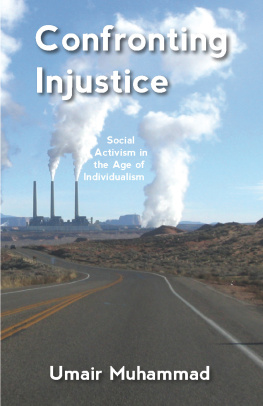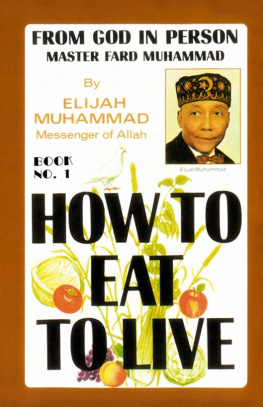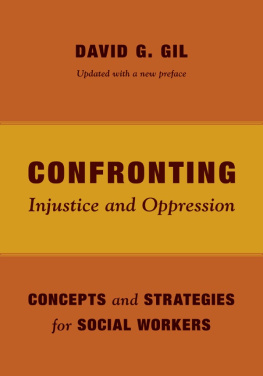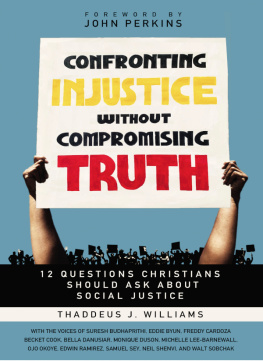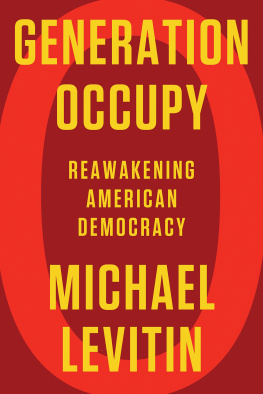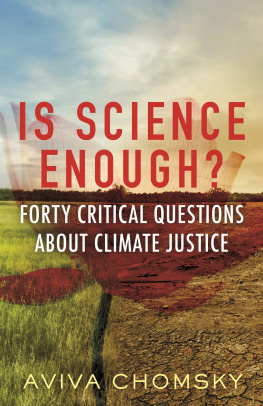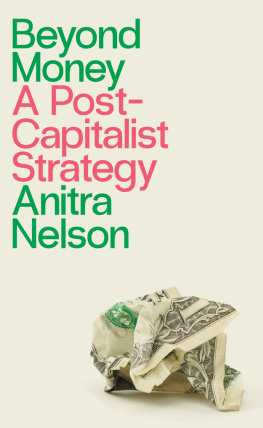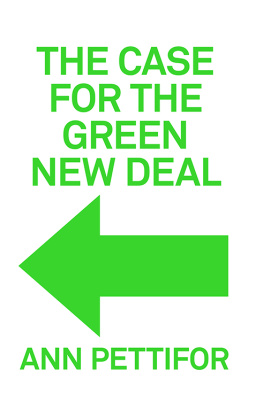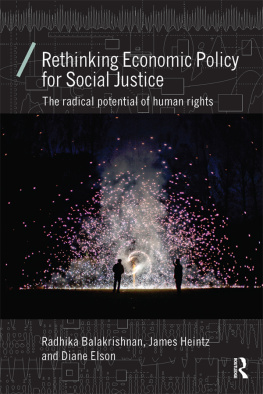Contents
2014 Umair Muhammad
Licensed under the Creative Commons Attribution-NonCommercial 4.0 license
http://creativecommons.org/licenses/by-nc/4.0/
Some rights reserved.
First published by Muhammad, Umair
This edition published in 2016 by
Haymarket Books
P.O. Box 180165
Chicago, IL 60618
773-583-7884
www.haymarketbooks.org
info@haymarketbooks.org
ISBN: 978-1-60846-571-2
Book design by Alexandra Fox. Cover design by Rachel Cohen.
Trade distribution:
In the US, Consortium Book Sales and Distribution,
www.cbsd.com
In Canada, Publishers Group Canada, www.pgcbooks.ca
In the UK, Turnaround Publisher Services,
www.turnaround-uk.com
All other countries, Publishers Group Worldwide,
www.pgw.com
This book was published with the generous support of Lannan Foundation and Wallace Action Fund.
Library of Congress Cataloging-in-Publication data is available.
Waitin for when the last shall be first and the first shall be last
In a cardboard box neath the underpass
Bruce Springsteen
Acknowledgements
The love and support of my parents is a crucial element in all of my undertakings, including this book.
I am indebted to Connor Allaby, Cyril Francis, Pascal Genest-Richard, Patricia Hoyeck, Khalil Martin, Daniel Miller, Brayden McNeill, Filzah Nasir, Saqib Naveed, Jennifer Nowoselski, Rahat Rahman, Elmira Reisi, Vinay Sagar, and Gajan Sathananthan for reading all or parts of the original manuscript and offering helpful comments. The early drafts of the book were greatly improved because of their criticisms and advice. My thanks to Jordyn Marcellus for copy-editing and to Alexandra Fox for taking on numerous tasks required to get the original edition of the book published.
Without the encouragement given by John Riddell and Suzanne Weiss, the present edition of the book would likely not have come into existence. Also, without them, the original edition would have gotten a lot less attention.
Everyone I have had a chance to interact with at Haymarket Books is great. I especially need to thank John McDonald, who encouraged me to send in the manuscript, as well as Anthony Arnove and Dao X. Tran, both of whom did not seem to mind too much when I didnt send things in on time or when I overlooked certain tasks. Thanks are also due to Rachel Cohen, Eric Kerl, and many others behind the scenes at Haymarket with whom I have not directly interacted.
Sadia Khan is the reason the afterword makes any sense whatsoever.
This book is dedicated to my mothers late sister, RukhsanaChhana Khala, as she was known to me. Her passing served as a painful reminder that I am much too far away from home. I am grateful that I was able to visit and spend time with her a few years ago. Her deep sense of justice will remain an inspiration.
The original edition of the book was made possible by an online crowd-funding campaign to which dozens of people contributed. I would like to thank the following people in particular for their generous contributions:
Majd Al-Shihabi
Connor Allaby
Joe Chellakudam
Kyle Eckart
Chanakya Gupta
Zeeshan Haider
Tanya Herbert
Mahmoud Khattab
Angela Ko
David Lalanne
Kaitlynn Livingstone
Ewelina Luczko
Yiannis Loizides
Evan MacAdam
Patrick Miller
Navninder Mokha
Filzah Nasir
Viraj Ranjankumar
Chelsey Rhodes
George Roter
Vinay Sagar
Gajan Sathananthan
Mohamed Sidahmed
Marc-Andr Simard
Adam Spilka
Waterloo Public Interest Research Group
Obaidullah Younas
Aftad Zaman
Introduction
In his 1969 novel Slaughterhouse-Five , Kurt Vonnegut tells of an acquaintance who chided him for writing an anti-war book: Why dont you write an anti- glacier book instead?
What he meant, of course, Vonnegut writes, was that there would always be wars, that they were as easy to stop as glaciers.
Vonnegut was wrong. Hardly anyone could have known it at the time but it turns out that glaciers are quite a bit easier to stop than wars. Not only have we become proficient at stopping glaciers, we have forced a great number of them into rapid retreat. All we had to do was release massive amounts of greenhouse gases into the atmosphere by burning fossil fuels at manic ratespar for the course as far as modern civilization seems to be concerned. It would be wonderful if right about now we could also come up with a way to stop wars. Otherwise, humanity will soon find itself in more than a bit of trouble.
Consider, for example, the fate connected to the rapidly melting glaciers in Tibet. These glaciers are the source of a significant number of Asias major rivers and support the livelihoods of 1.4 billion people. As they continue to melt and the water supplies in the rivers they feed become progressively unreliable, the threat of conflict over the already-contested transboundary rivers in the region will be greatly heightened. Countries will be increasingly inclined to build dams to manage erratic flows and stop the water from getting downstream. It just so happens that three of the countries that share Tibetan waterwaysChina, India, and Pakistanpossess nuclear weapons. We can be certain that unless meaningful action is taken in advance by the concerned parties in the region to prevent conflict, countless human beings will lose their lives in possibly-nuclear water wars. So it goes.
Unfortunately for us, dire scenarios like this one are not unique to Asia. They can be found across the planet. If allowed to persist, before long climate change could very well mean the end of our species.
Humanity faces a crisis on a scale unlike any it has encountered in the past. Those who are alive today have the power to ensure that human beings have a desirable future on this planet. We can accomplish this historic task or we can condemn succeeding generations to utter misery and, ultimately, to nonexistence.
Of course, to present existing humanity as a homogenous collective by referring to it as those who are alive today is the wrong way to approach the environmental crisis. In no way are all of us equally responsible for having created the problem. What is more, the burdens of a ruined environment, at least in the short term, will not be borne equally. A minority of human beingsthe richhave been largely responsible for creating climate change. And those who have contributed least to the problem stand to suffer the most as a result of it. The poor, as usual, will disproportionately bear the adverse consequences of actions taken by the wealthy.
Noting that one day seven billion people will live on the planet in Slaughterhouse-Five , Vonnegut offers the following reflection: I suppose they will all want dignity. In 2011, the worlds population did cross the seven-billion mark and, as all of these beings are human, we can indeed be sure that they want a dignified existence. Countless numbers of them are currently denied it. Climate change poses a serious threat to a desirable future for the mass of humanity, but for too many people on our planet the present happens to be undesirable. If climate change is an acute crisis, global poverty is a chronic one. Hundreds of millions continue to lack access to basic amenities like food, water, sanitation, shelter, and healthcare at a time when indescribable amounts of wealth have been amassed. The past half-century has witnessed repeated pronouncements being made in every corner of the world about the need to reduce poverty. Despite this, and despite the resources we have had at our disposal, progress in the fight against poverty has been painfully slow.
South Asia and sub-Saharan Africa in particular have had a difficult time with poverty-reduction. By contrast in East Asia, most recently especially in China, there has been noteworthy progress. China has relied on its abundance of cheap labor to attain its famed status as the workshop of the world. Becoming a manufacturing powerhouse has allowed the country to pull millions out of poverty. But all is not good news. At the same time as incredible growth rates have been realized, an environmental catastrophe has been unleashed. Outdoor air pollution led to 1.2 million premature deaths in China in 2010, accounting for about 40 percent of the global total.
Next page
